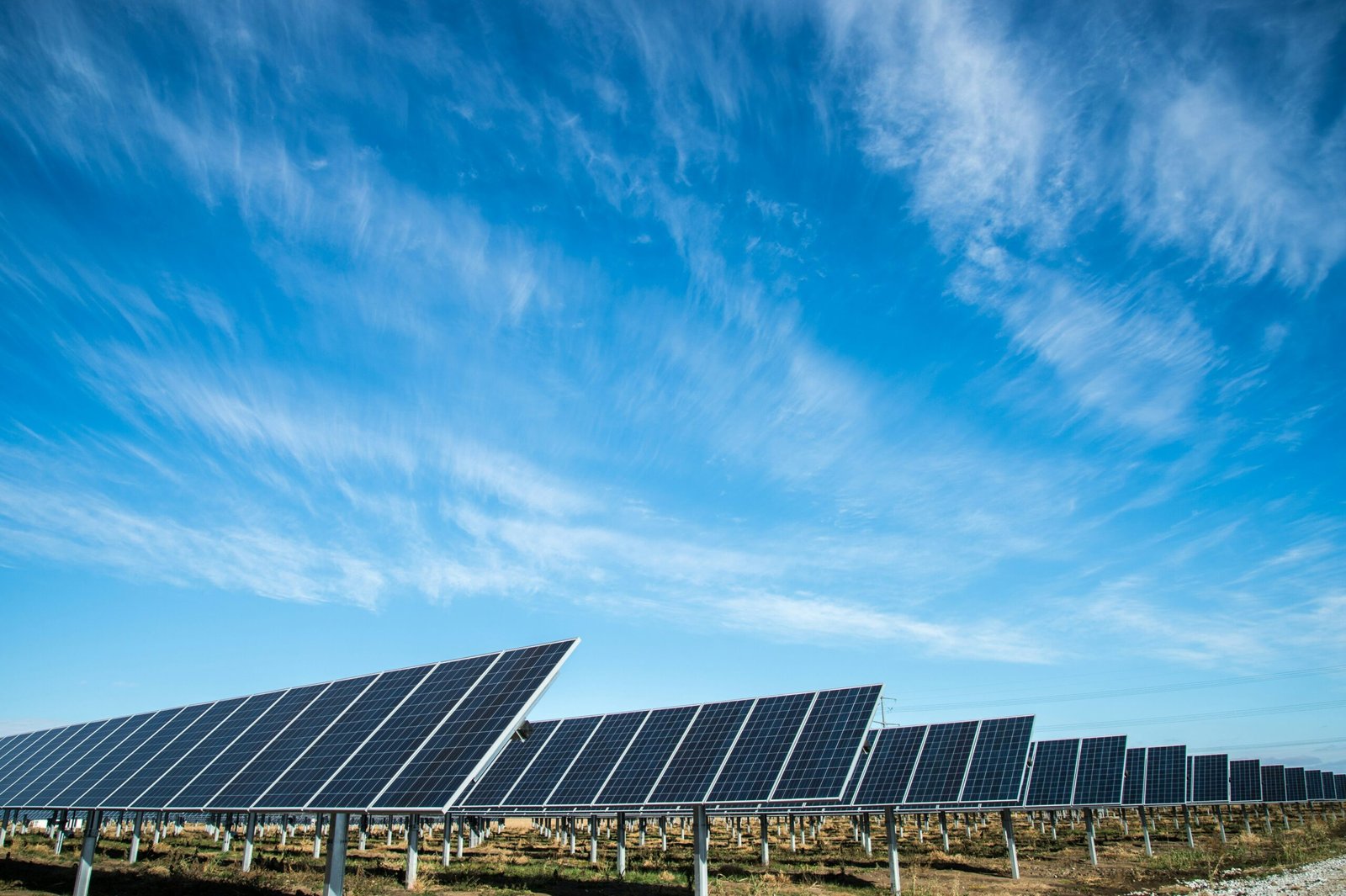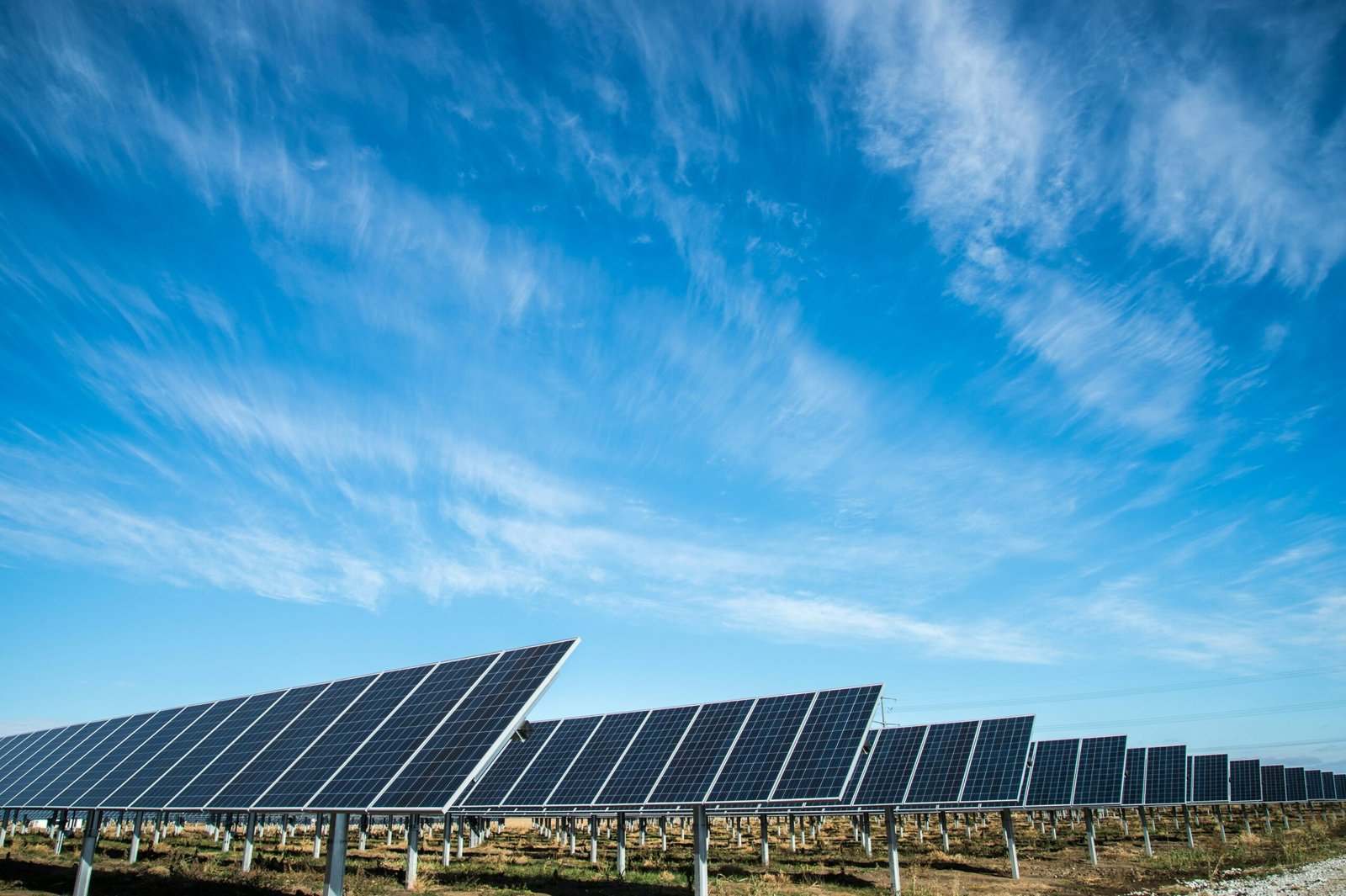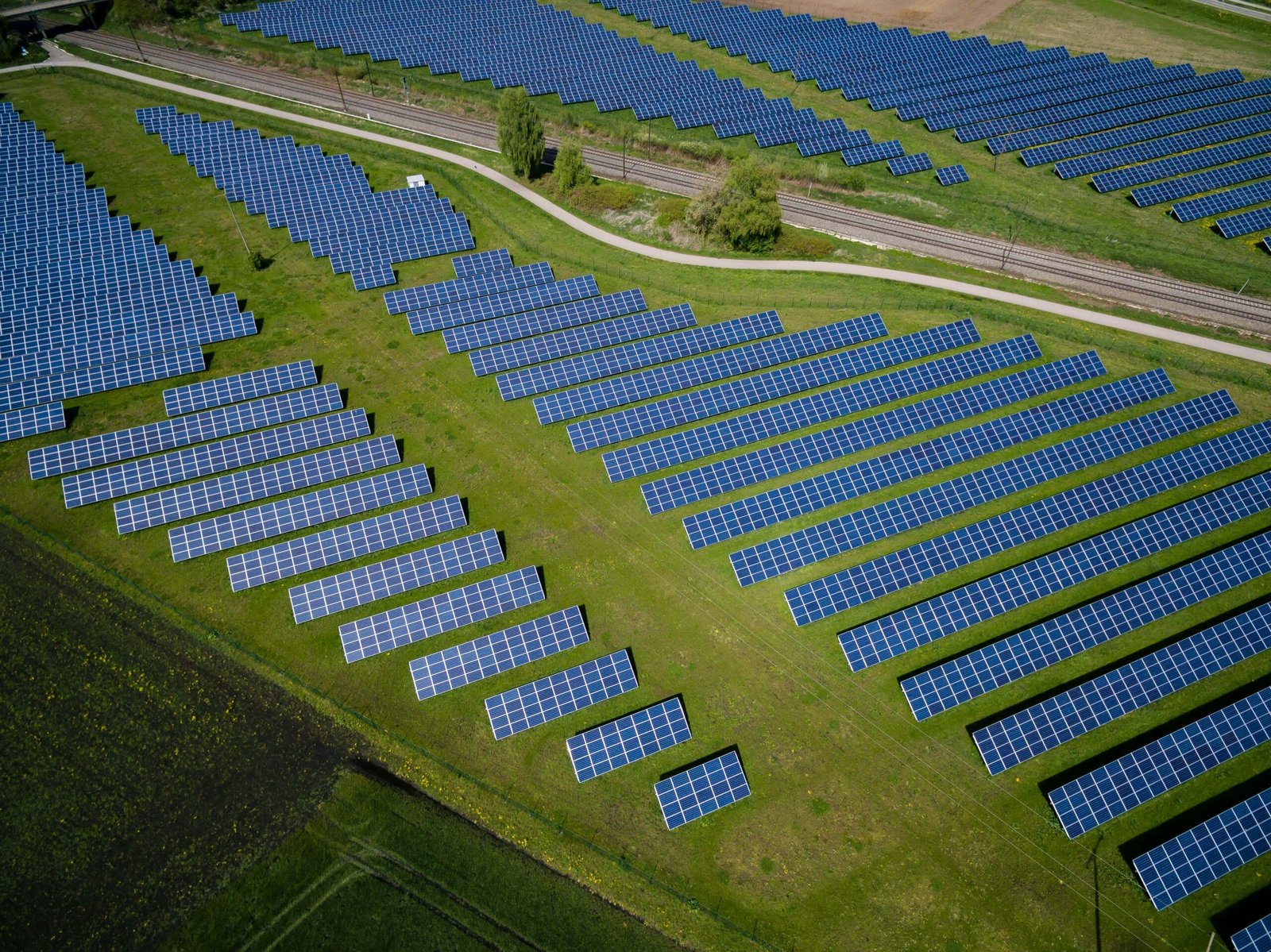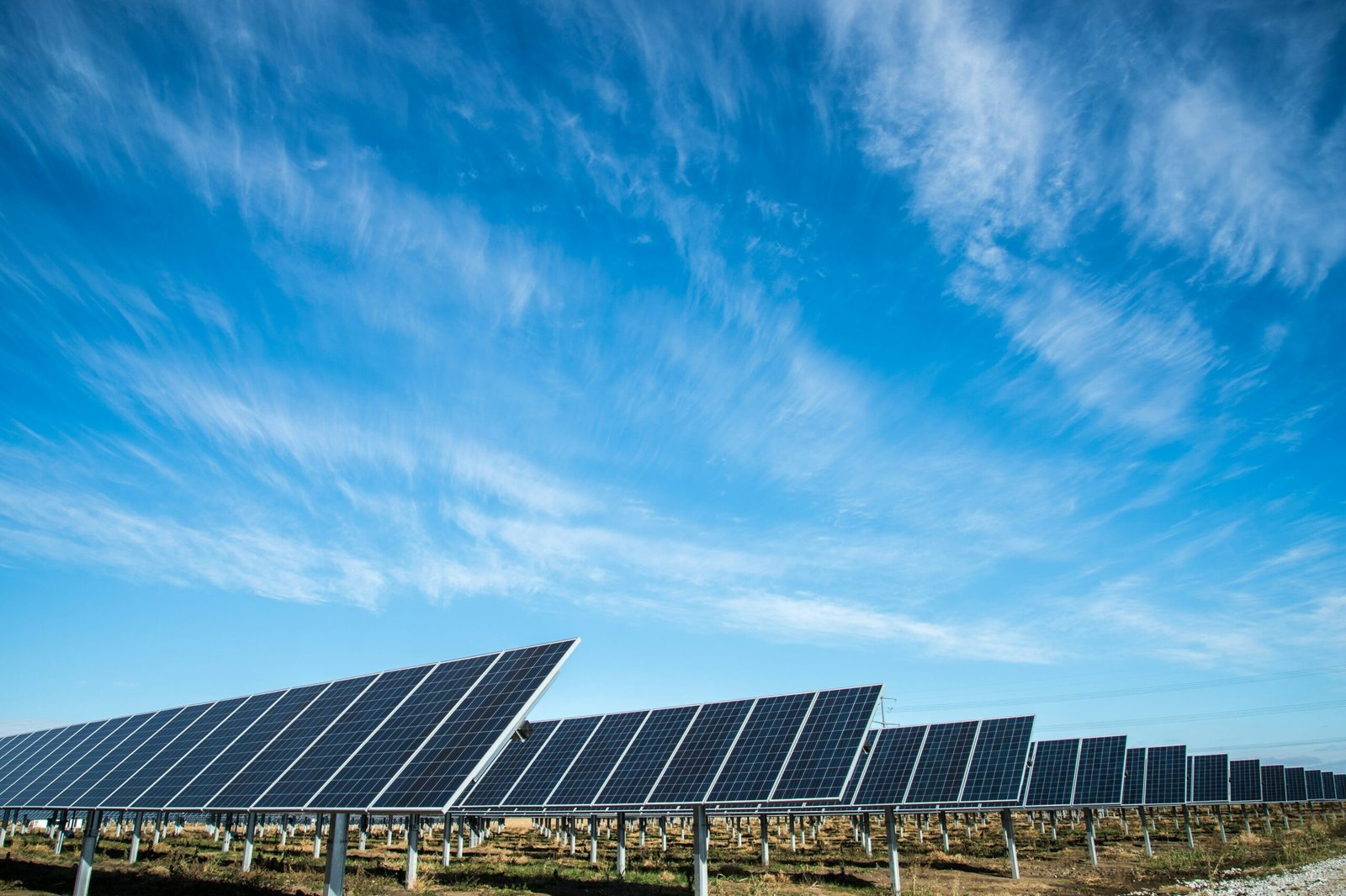Introduction to Solar Energy
Solar energy, derived from the sun’s radiation, is an increasingly popular renewable energy source. This form of energy is harnessed using technologies such as photovoltaic (PV) panels and solar thermal systems. PV panels convert sunlight directly into electricity, while solar thermal systems capture and utilize the sun’s heat for various purposes, including heating water and spaces.
The growing interest in solar energy among homeowners is evident due to several factors. Firstly, it offers a sustainable alternative to traditional energy sources like coal, oil, and natural gas, which are finite and contribute significantly to environmental degradation. As the world grapples with climate change, reducing carbon footprints has become a priority, and solar energy presents a viable solution.
Moreover, advancements in technology have made solar energy systems more efficient and affordable. The initial investment in solar panels is now more accessible to a broader range of homeowners, and the long-term savings on energy bills make it an economically sound choice. Governments and local authorities further incentivize this shift through subsidies, tax credits, and rebates, encouraging more individuals to adopt solar power.
Solar energy not only reduces dependency on fossil fuels but also enhances energy security. By generating electricity locally, homeowners can mitigate the impact of power outages and reduce the strain on national grids. Additionally, the environmental benefits of solar energy are substantial. It produces clean, green power that does not pollute the air or water, thus contributing to a healthier planet.
In today’s environmental landscape, the importance of transitioning to sustainable energy solutions cannot be overstated. As more homeowners recognize the advantages of solar energy, its adoption continues to rise, paving the way for a more resilient and eco-friendly future. This blog post will delve into the top five benefits of switching to solar energy for your home, highlighting why this renewable source is an excellent choice for modern homeowners.
Cost Savings and Financial Benefits
Switching to solar energy can result in substantial cost savings for homeowners. The initial investment in solar panels and installation might appear significant, but the long-term financial benefits generally outweigh the upfront costs. On average, homeowners can expect to save between 50% to 75% on their energy bills over the lifespan of their solar energy systems. These savings are primarily due to the reduction in monthly electricity bills, as solar panels generate free, renewable energy from the sun.
The initial cost of installing solar panels varies based on factors such as system size, location, and the specific equipment used. However, the price has significantly decreased over the past decade due to advancements in technology and increased competition in the market. To further alleviate the initial financial burden, various government incentives, tax credits, and rebates are available. For instance, the Federal Investment Tax Credit (ITC) allows homeowners to deduct a substantial percentage of their solar installation costs from their federal taxes. Additionally, many states and local governments offer further incentives to encourage the adoption of renewable energy.
Another financial benefit of switching to solar energy is the potential increase in property value. Homes equipped with solar panels often sell at a premium compared to those without, as buyers recognize the long-term cost savings and environmental benefits. Moreover, solar energy systems typically have low maintenance costs, adding to their financial attractiveness.
Real-life examples effectively illustrate these financial benefits. For instance, a homeowner in California reported saving over $1,200 annually on energy bills after installing a solar energy system. Over a 20-year period, these savings amounted to more than $24,000, significantly offsetting the initial investment. Another case study from Florida highlighted a family’s experience of reducing their monthly energy bills by 80%, demonstrating the substantial financial impact solar energy can have on household budgets.
In conclusion, while the initial investment in solar energy may seem daunting, the long-term cost savings, coupled with government incentives and increased property value, make it a financially wise choice for homeowners. By taking advantage of available financial benefits, homeowners can enjoy significant reductions in their energy expenses and contribute positively to environmental sustainability.
Environmental Impact and Sustainability
Switching to solar energy offers significant environmental benefits, primarily by reducing greenhouse gas emissions. Traditional energy sources, such as coal and natural gas, contribute heavily to carbon dioxide and other harmful emissions. Solar energy, on the other hand, produces clean, renewable power by harnessing the sun’s rays, thereby significantly lowering the carbon footprint of households. According to the Environmental Protection Agency (EPA), the average residential solar panel system can reduce carbon emissions by approximately 3,000 pounds annually, equivalent to planting about 100 trees each year.
Solar energy also plays a crucial role in reducing our dependency on fossil fuels. Fossil fuels are finite resources that not only degrade the environment through extraction and combustion but also contribute to geopolitical tensions and economic instability due to fluctuating prices. By adopting solar power, households can mitigate these issues while promoting energy independence and security. The National Renewable Energy Laboratory (NREL) states that widespread adoption of solar power could reduce national reliance on fossil fuels by up to 40% by 2050.
Beyond reducing emissions and dependency on non-renewable resources, solar energy contributes to a broader goal of sustainability. The shift towards solar power aligns with global efforts to combat climate change and promote sustainable living practices. Solar panels have a lifespan of approximately 25 to 30 years, during which they produce energy with minimal maintenance and no fuel costs. This longevity ensures a consistent, sustainable energy source that can significantly lower household utility bills while fostering environmental stewardship.
Various research findings support the environmental benefits of solar energy. For instance, a study published in the journal “Nature Energy” found that solar energy could prevent up to 100,000 premature deaths annually by reducing air pollution. This statistic underscores the profound positive impact that solar adoption can have on both local and global scales, making it a pivotal element in the transition towards a more sustainable future.
Energy Independence and Reliability
One of the most significant advantages of switching to solar energy is the increased energy independence it offers to homeowners. Traditional energy sources are often subject to fluctuations in availability and price, leaving consumers vulnerable to outages and rising costs. By adopting solar energy, homeowners can generate their own electricity, reducing their reliance on external power grids. This self-sufficiency not only secures a steady supply of electricity but also shields homeowners from unpredictable energy markets.
Solar power systems have proven to be exceptionally reliable, particularly during power outages. Unlike traditional power sources that can be disrupted by natural disasters, solar energy systems can continue to operate independently. This reliability is especially crucial in remote areas where access to traditional power grids can be limited or unstable. By harnessing the sun’s energy, homeowners in these regions can ensure a consistent and dependable power supply.
Advancements in solar technology have further enhanced the reliability and efficiency of solar energy systems. One notable development is the integration of battery storage solutions. These batteries store excess energy generated during sunny periods, which can then be used during cloudy days or at night. This not only maximizes the utility of the solar panels but also ensures that there is always a reserve of power available. Consequently, modern solar energy systems equipped with battery storage offer an unparalleled level of reliability, making them a viable and stable energy source for homes.
In conclusion, the shift to solar energy empowers homeowners with greater energy independence and reliability. The ability to generate and store their own electricity ensures a steady and secure energy supply, mitigating the risks associated with traditional power sources. With ongoing advancements in solar technology, the reliability and efficiency of these systems continue to improve, making solar energy an increasingly attractive option for homeowners seeking a resilient and self-sufficient energy solution.
Increase in Property Value
Investing in solar energy not only offers immediate savings on utility bills but also significantly enhances the market value of your property. According to a study by the Lawrence Berkeley National Laboratory, homes equipped with solar panels are valued at approximately $15,000 higher than comparable homes without solar energy systems. This value increment is bolstered by the growing preference among homebuyers for energy-efficient and environmentally friendly properties.
Potential buyers are increasingly viewing solar-equipped homes as attractive due to the long-term energy savings they offer. The prospect of reduced energy bills can be a compelling selling point, translating into a higher willingness to pay a premium for such properties. Additionally, as awareness of environmental issues rises, more buyers are inclined toward homes that contribute to reducing carbon footprints.
To maximize the increase in property value when installing solar panels, it is essential to consider the quality and capacity of the installation. High-efficiency panels with robust warranties are more appealing to prospective buyers, ensuring they are not only investing in immediate savings but also in long-term reliability. Furthermore, ensuring that the installation is aesthetically pleasing and well-integrated with the roof design can enhance curb appeal and overall property value.
Another key consideration is the net metering policy in your area. Net metering allows homeowners to sell excess energy back to the grid, potentially generating additional income. Homes in regions with favorable net metering policies are likely to see a more significant increase in property value. It’s advisable to keep detailed records of the installation process, including permits, warranties, and energy savings, to provide potential buyers with a comprehensive understanding of the benefits.
In summary, installing solar panels can lead to a notable increase in property value, driven by the dual benefits of long-term energy savings and environmental sustainability. By selecting high-quality panels, ensuring a visually appealing installation, and leveraging favorable net metering policies, homeowners can maximize the financial benefits when selling their solar-equipped properties.
One of the notable advantages of switching to solar energy for your home is the low maintenance requirements of solar energy systems. Solar panels are designed to be highly durable, often lasting 25 years or more with minimal upkeep. This longevity is underpinned by the robust materials used in their construction and the lack of moving parts, which reduces the wear and tear that typically necessitates frequent maintenance in other energy systems.
Routine maintenance of solar panels is straightforward and primarily involves periodic checks and occasional cleaning to ensure optimal performance. Dust, debris, and bird droppings can accumulate on the panels, potentially reducing their efficiency. However, these obstructions can be easily removed with a gentle rinse of water or a soft brush. For homeowners in areas with heavy snowfall, ensuring that snow does not cover the panels is also advisable, although many modern panels are designed to allow snow to slide off naturally.
Solar energy systems are also equipped with inverters that convert the direct current (DC) produced by the panels into alternating current (AC) for home use. These inverters may require inspection every few years to ensure they are functioning correctly, but this too is a relatively low-maintenance task. In most cases, professional solar installers offer maintenance packages and support services that include these routine inspections, giving homeowners peace of mind.
Additionally, solar panel manufacturers and installers typically provide comprehensive warranties that cover the panels and their performance for up to 25 years. These warranties often include coverage for manufacturing defects and significant drops in panel efficiency, further reducing the long-term maintenance concerns for homeowners. The support services accompanying these warranties ensure that any issues that do arise can be swiftly addressed by professionals, thereby maintaining the system’s efficiency and longevity.
Incorporating solar energy into your home not only fosters environmental sustainability but also offers a practical, low-maintenance solution for long-term energy needs. The durability and minimal upkeep required for solar panels make them an attractive investment for homeowners seeking reliable and sustainable energy sources.
Technological Advancements and Future Trends
In recent years, solar energy technology has seen significant advancements, making it a more viable and attractive option for homeowners. One of the most notable improvements is the increased efficiency of solar panels. Modern photovoltaic cells are now capable of converting more sunlight into electricity, thereby maximizing energy output even in less-than-ideal conditions. This leap in efficiency means that homeowners can achieve the same energy production with fewer panels, reducing both the space required and the initial investment.
Another groundbreaking development is the advent of solar shingles. Unlike traditional solar panels, solar shingles are designed to blend seamlessly with standard roofing materials, providing a more aesthetically pleasing alternative. These shingles not only generate electricity but also serve as a functional roofing material, offering both practicality and a streamlined appearance. This innovation is particularly appealing to homeowners concerned about the visual impact of solar installations on their properties.
Furthermore, the integration of smart solar systems has revolutionized the way solar energy is managed and utilized. These systems use advanced software and IoT (Internet of Things) technology to monitor and optimize energy production and usage in real-time. Homeowners can easily track their energy consumption, detect inefficiencies, and even sell excess power back to the grid. This level of control and flexibility makes solar energy a more attractive and practical option for modern households.
Looking ahead, the future of solar energy looks promising with continuous advancements in research and development. Emerging technologies, such as perovskite solar cells and solar paint, hold the potential to further reduce costs and enhance efficiency. Additionally, ongoing efforts to improve battery storage solutions will address one of the main challenges of solar energy—its intermittency. By storing excess energy produced during peak sunlight hours, homeowners can ensure a steady supply of power even when the sun isn’t shining.
In summary, the combination of technological advancements and future innovations is set to make solar energy increasingly accessible, efficient, and cost-effective. As research and development continue to drive progress, homeowners can look forward to even more innovative solutions that will enable them to harness the full potential of solar energy.
Conclusion and Call to Action
Switching to solar energy for your home offers a multitude of benefits that are both financially and environmentally rewarding. Firstly, adopting solar power can lead to significant cost savings on energy bills, providing homeowners with a more predictable and stable financial outlook. Over time, the initial investment in solar panels can be offset by reduced utility costs, making it a smart long-term financial decision.
Secondly, solar energy is a clean and renewable resource that helps reduce your carbon footprint. By generating electricity from sunlight, homeowners can contribute to the reduction of greenhouse gas emissions and dependence on fossil fuels. This positive environmental impact is a crucial step toward mitigating climate change and promoting sustainable living.
Moreover, solar energy systems require minimal maintenance, providing a practical and hassle-free solution for energy needs. Solar panels are designed to be durable and can last for decades, ensuring a reliable source of power with minimal upkeep. Additionally, many regions offer incentives, tax credits, and rebates for solar energy installations, further enhancing the financial attractiveness of making the switch.
Given these compelling benefits, it is clear that solar energy is a viable and advantageous option for homeowners. To explore this opportunity further, we encourage you to conduct additional research and consult with reputable solar energy providers or consultants. Personalized advice can help you understand the specific benefits and feasibility of solar energy for your home.
Take the first step towards a sustainable energy future by considering solar energy for your home. By making this transition, you not only invest in your financial well-being but also contribute positively to the environment. Explore the potential of solar energy today and join the growing community of homeowners committed to a cleaner, greener future.







